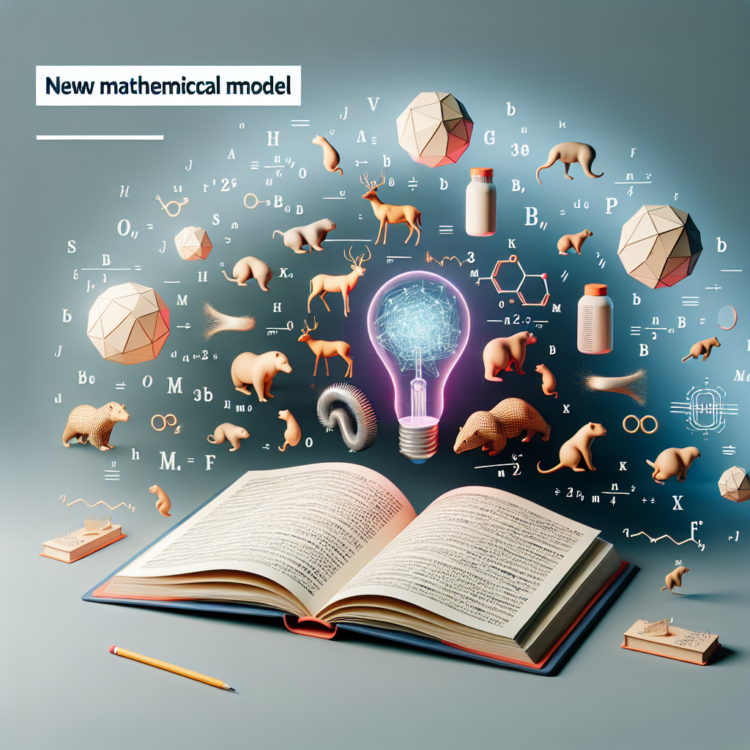Being nursed by a single parent could be an evolutionary strategy to curb the spread of harmful microbes in mammals, according to a novel theory developed by mathematicians.
Being nursed by a single parent could be an evolutionary strategy to curb the spread of harmful microbes in mammals, according to a novel theory developed by mathematicians.
The rainforests of Malaysia are home to the only known case of a wild male mammal that produces milk. The Dayak fruit bat is a vanishingly rare case of male milk production, despite the fact that the potential for breastfeeding remains in place in most male mammals.
In the 1970s, evolutionary theorists posited that the near absence of lactation in males, even though offspring could benefit from the extra nutrition provided, could be attributed to the uncertainty of paternity: As male mammals can’t be sure they are the biological father, this reduces their evolutionary drive to invest heavily in offspring care, including breastfeeding.
Now, mathematicians from the University of York have suggested a complementary perspective. Their hypothesis, published in Nature Communications, suggests that the reason male mammals don’t breastfeed might be driven by the rich community of microbes that lives in breast milk and which plays an important part in establishing the gut microbiome of the infant.
The theory demonstrates how the transmission of the milk microbiome from both parents would allow harmful microbes to spread through mammalian populations. Maternal-only lactation stops this as restricting transmission of the milk microbiome to females in effect acts as a sieve, retaining just the microbes with beneficial effects.
One of the authors of the study, Dr George Constable from the Department of Mathematics at the University of York, said: “We became fascinated with this topic when we read about Azara’s owl monkeys. They turn previous assumptions about why males don’t breastfeed upside down because they are the most devoted dads in the primate world: They do 80–90% of childcare and only hand their babies back to their female partners for nursing.
“When both parents are involved in feeding, the chance of a microbe being passed along and getting an initial foothold in a population is essentially doubled. So our theory suggests selection against the transmission of harmful microbes through mammary milk could be an additional selection pressure against male lactation.”
First author of the study, Dr Brennen Fagan working at the Leverhulme Centre for Anthropocene Biodiversity and the Mathematics Department at the University of York, added: “Breast milk is a living substance and it plays a key role in establishing the gut microbiome of mammals, which is a complex ecosystem of bacteria, viruses and fungi, along with their genetic material. This ecosystem plays a crucial role in health including by helping to protect animals against disease, helping to digest food and in many other ways we are only just discovering.
“While microbes are not inherently harmful or beneficial; it’s their presence and abundance that dictate the overall health of this internal community. A “wrong actor” at the early point of an animal’s life could change the microbiome at a pivotal moment.”
The mathematical model highlights the advantage of getting fed by just one parent, but the researchers say it makes evolutionary sense for this to be the mother because there has already been an inevitable transmission of microbes during birth and perhaps also in the womb.
Dr Constable added: “This theory fits with a pattern of strategies mammals have adopted in an evolutionary bid to limit the spread of potentially harmful elements. Notably, in humans mitochondrial DNA is exclusively passed down from the mother. This mechanism serves as a natural filter, maintaining genetic integrity by suppressing the proliferation of detrimental mutations. Additionally, the prevalence of monogamous relationships among certain species has been suggested as an adaptive response aimed at minimising the transmission of sexually transmitted infections (STIs).”
The researchers caution that their hypothesis is not intended as the basis for any judgements about the different ways of feeding human infants.
Dr Fagan added: “Our model is very much focused on the long-term evolution of the animal kingdom. The model does not tell us about individual families making individual choices on how to safely feed their children, especially not for humans in the modern world.
“Our hypothesis fills a gap in evolutionary theory and is concerned with selection pressures on mammals at population level and over very long periods of time spanning multiple generations.”
Maternal transmission as a microbial symbiont sieve, and the absence of lactation in male mammals is published in Nature Communications.
Journal
Nature Communications
Article Title
Maternal transmission as a microbial symbiont sieve, and the absence of lactation in male mammals
Article Publication Date
27-Jun-2024




